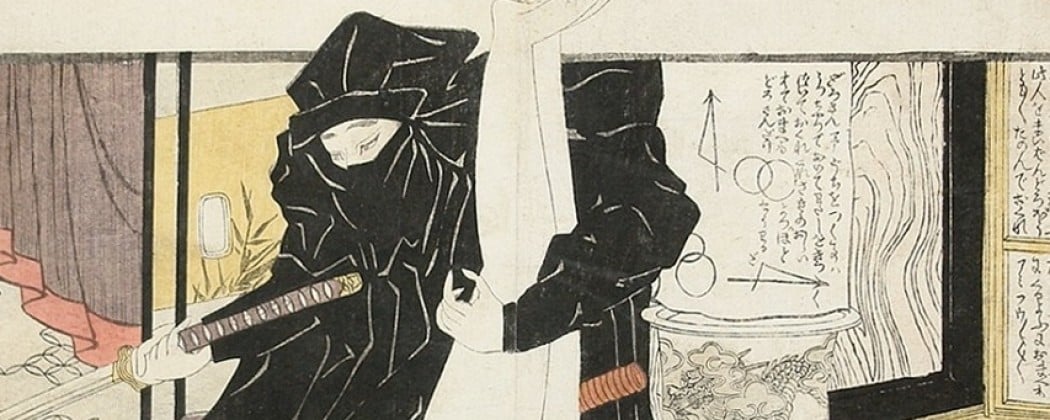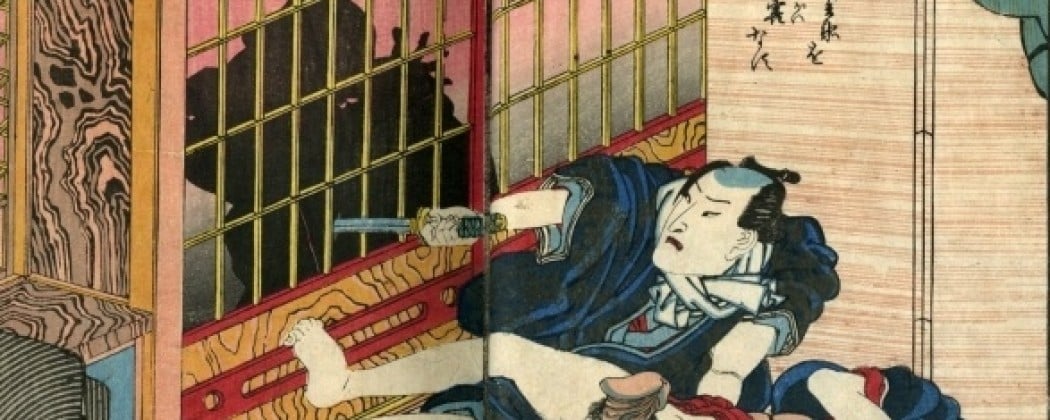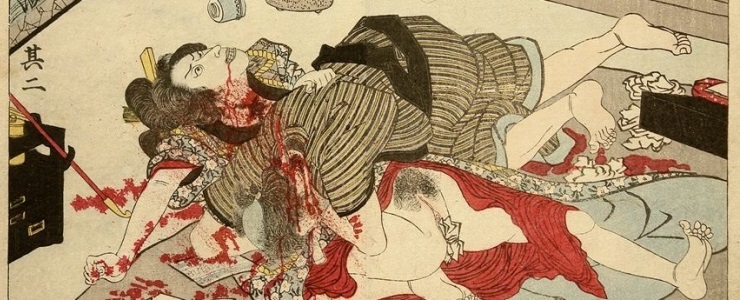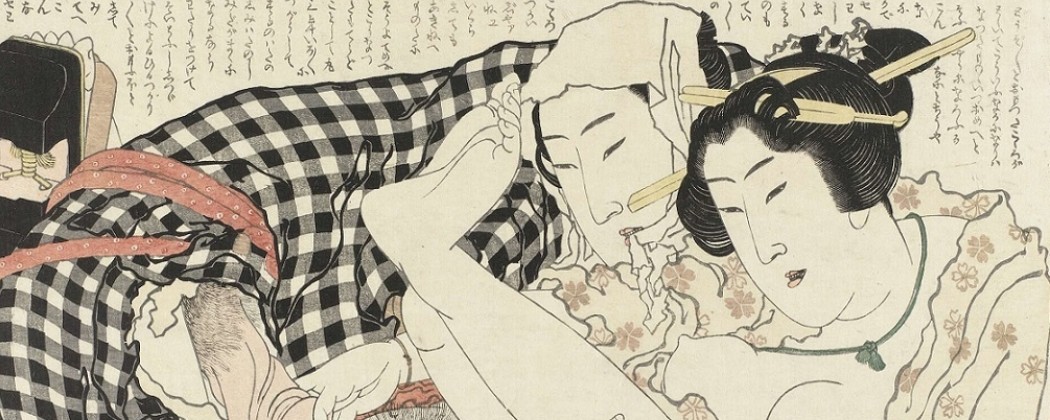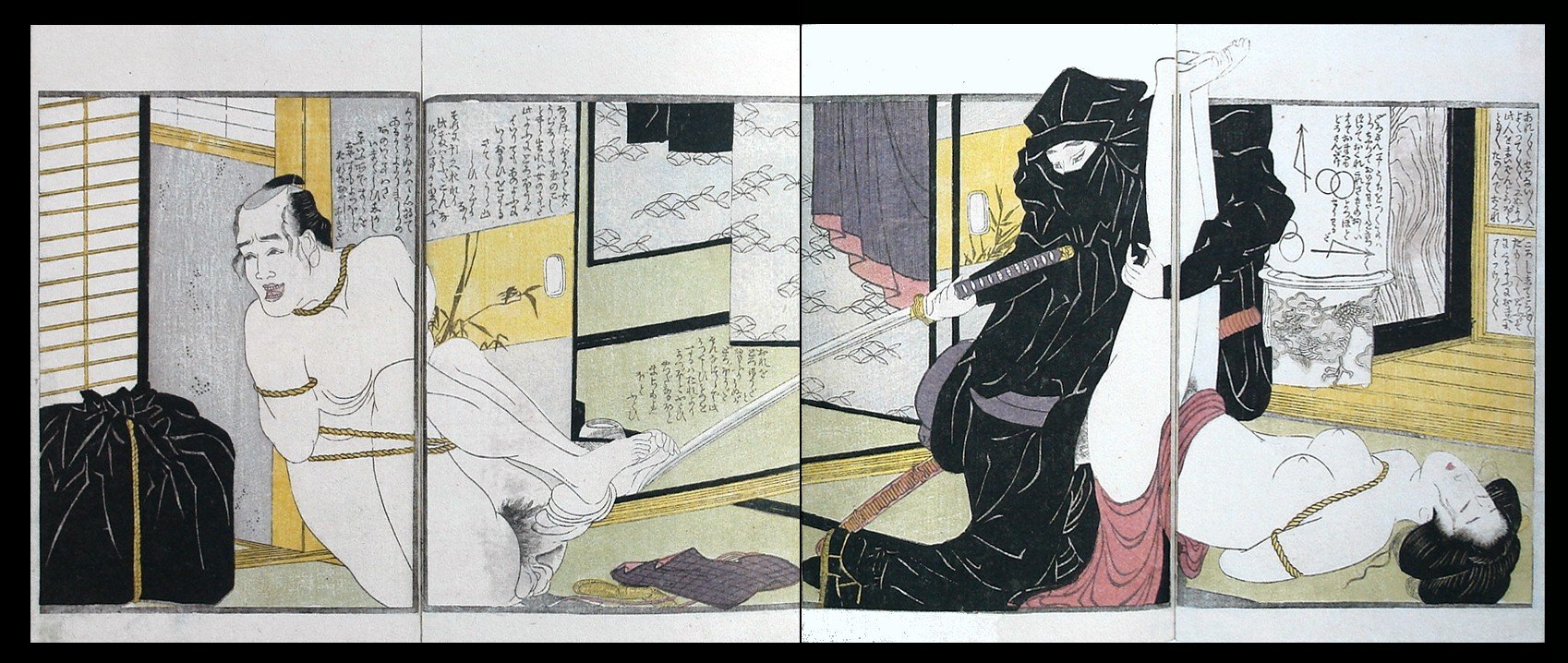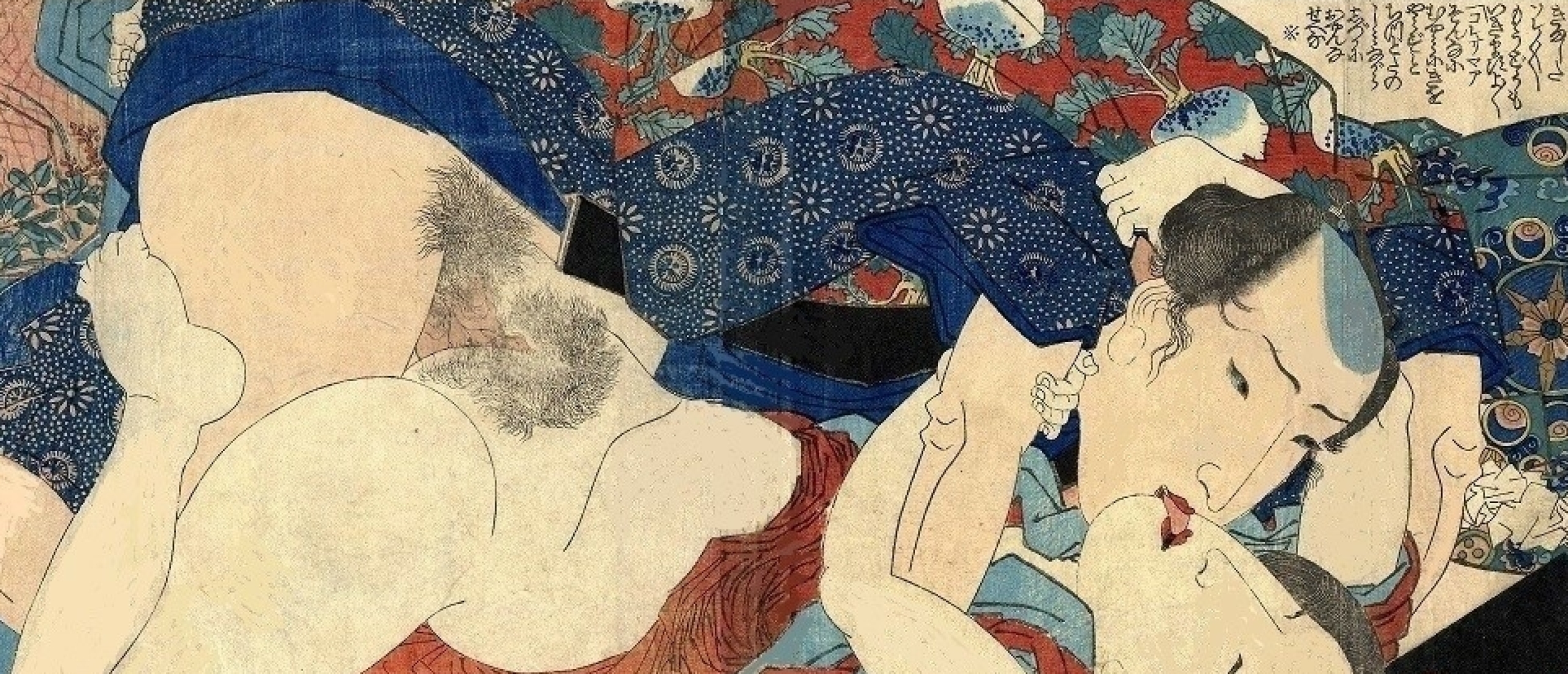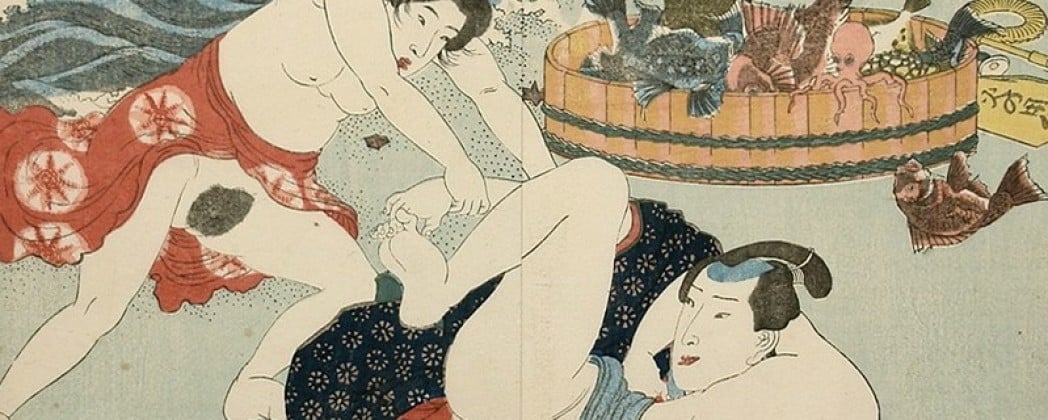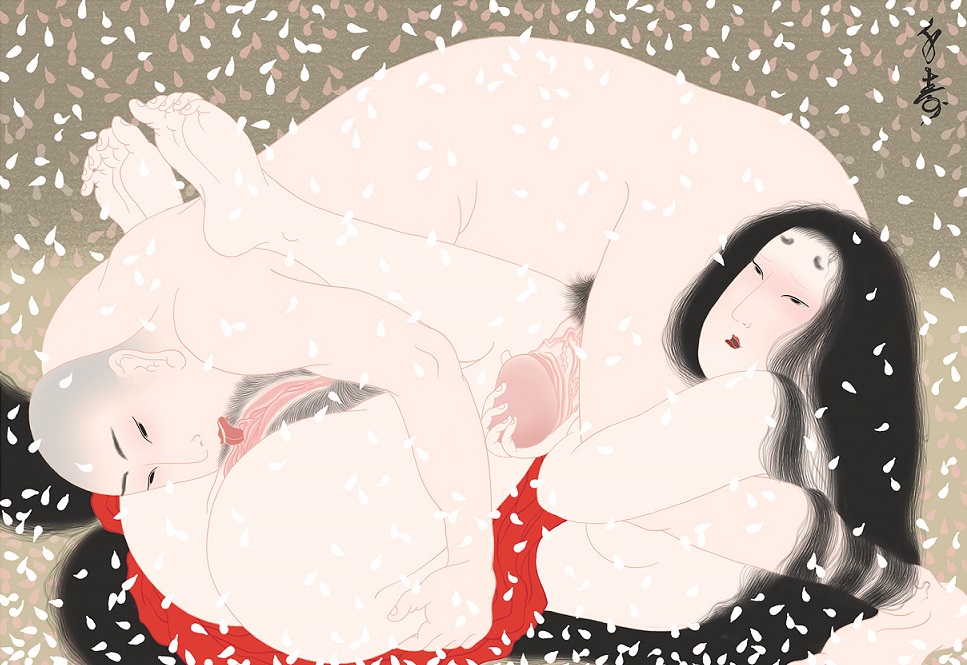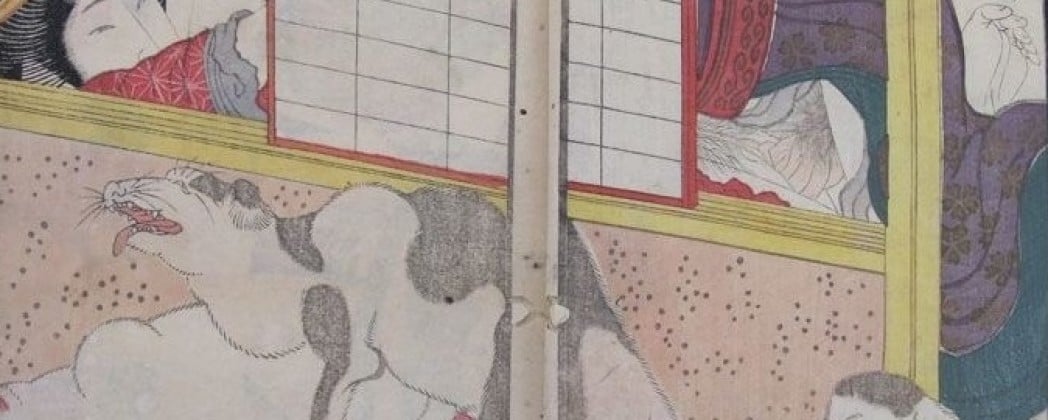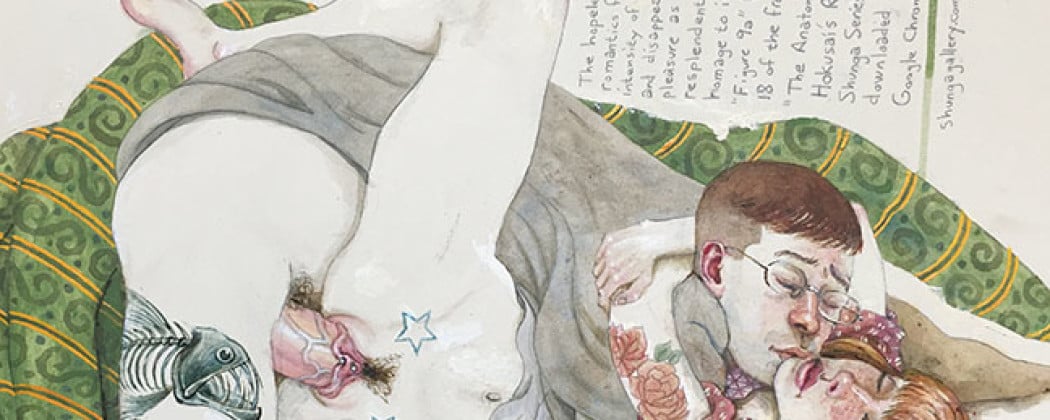
YES…It’s finally here! Shunga Gallery is proud to announce – for the first time in over 115 years – the release of our much anticipated woodblock print remake of one of Hokusai’s most dramatic shunga designs.
Authentic Feel
Earlier this year we gave the gifted ukiyo-e artist Yuuya Shimoi the assignment to produce a reproduction of Hokusai’s classic but rarely seen design from the ‘Erotic Book of Conjugal Eddies (Ehon futamigata)-series. We asked him to evoke the authentic feel of Hokusai’s original, as if we were getting back to early 19th-century Japan.
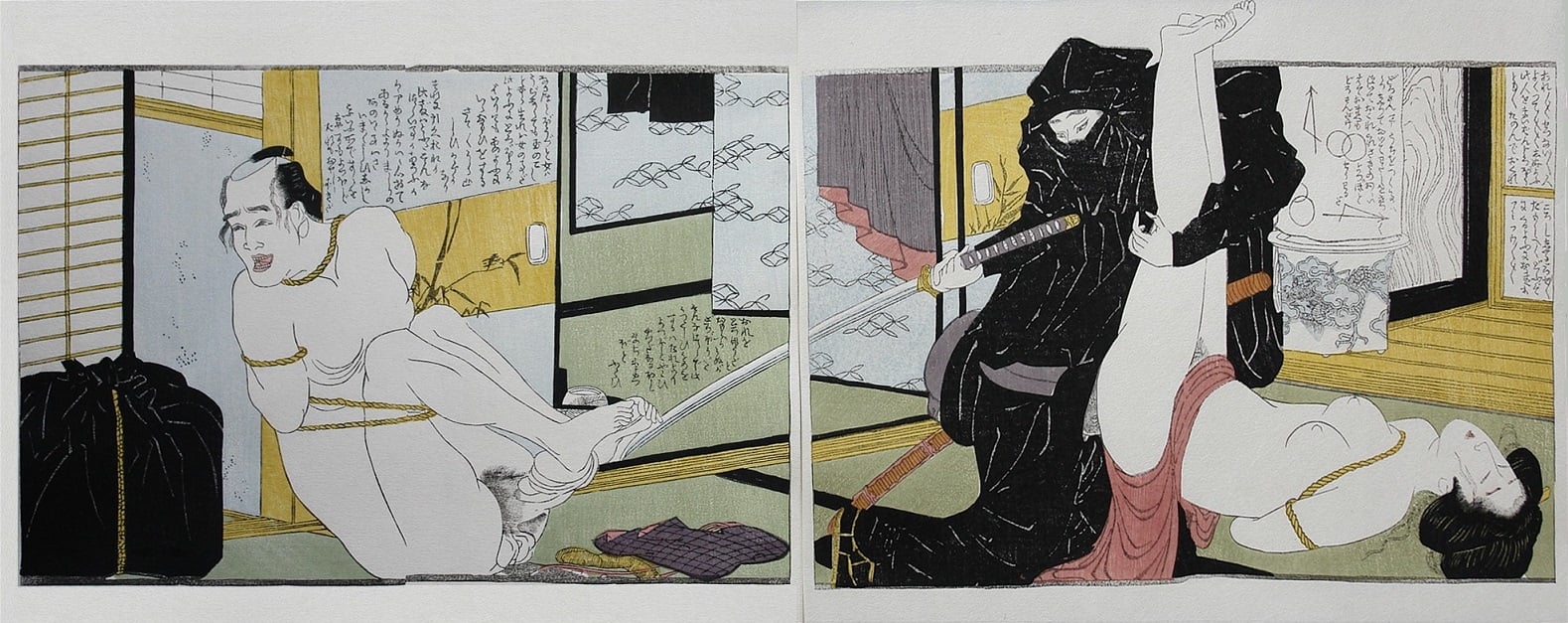
‘Remake of Hokusai’s classic design from the ‘Erotic Book of Conjugal Eddies (Ehon futamigata)-series‘ (2019)
Close to the Original
When we received the prints earlier this month I knew he succeeded in doing this. Shimoi remained close to the original (we have had the original twice in our collection!) and the print really takes you back to 1803. He carefully selected the applied pigments including the excellent green and purple coloring.
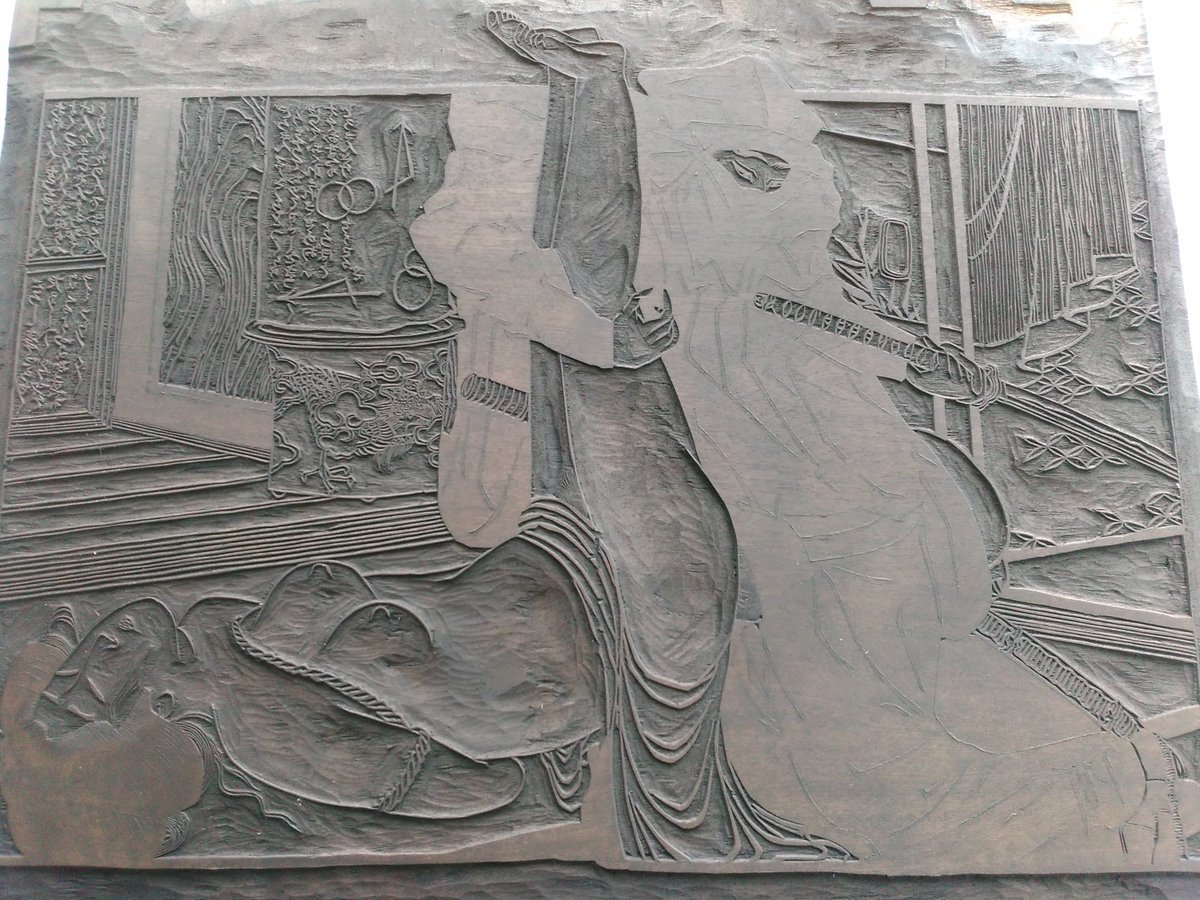
‘Key block for the right side‘
Blade of the Sword
One important detail has been changed (improved in my opinion). This concerns the blade of the sword which “connects” the two center pages. Since the original was issued in a book, and four different blocks were used, the depicted blade is interrupted by the space between the pages and for that reason does not form a continuous whole (see picture below!).
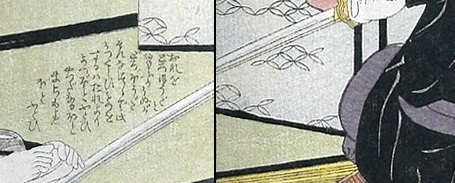
‘Disruption blade (original) ‘
Straight Line
In our new remake the sword runs through in a nice straight line (see picture below)!
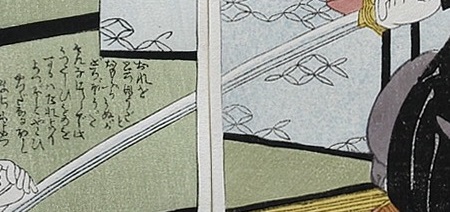
‘Blade in straight line’
Iconic
In every ukiyo-e genre Hokusai worked in, he managed to produce iconic images that defined the specific genre. The most famous examples of this are of course Hokusai's ‘ The Great Wave (c.1833) and The Dream of the Fisherman’s Wife (c.1814).
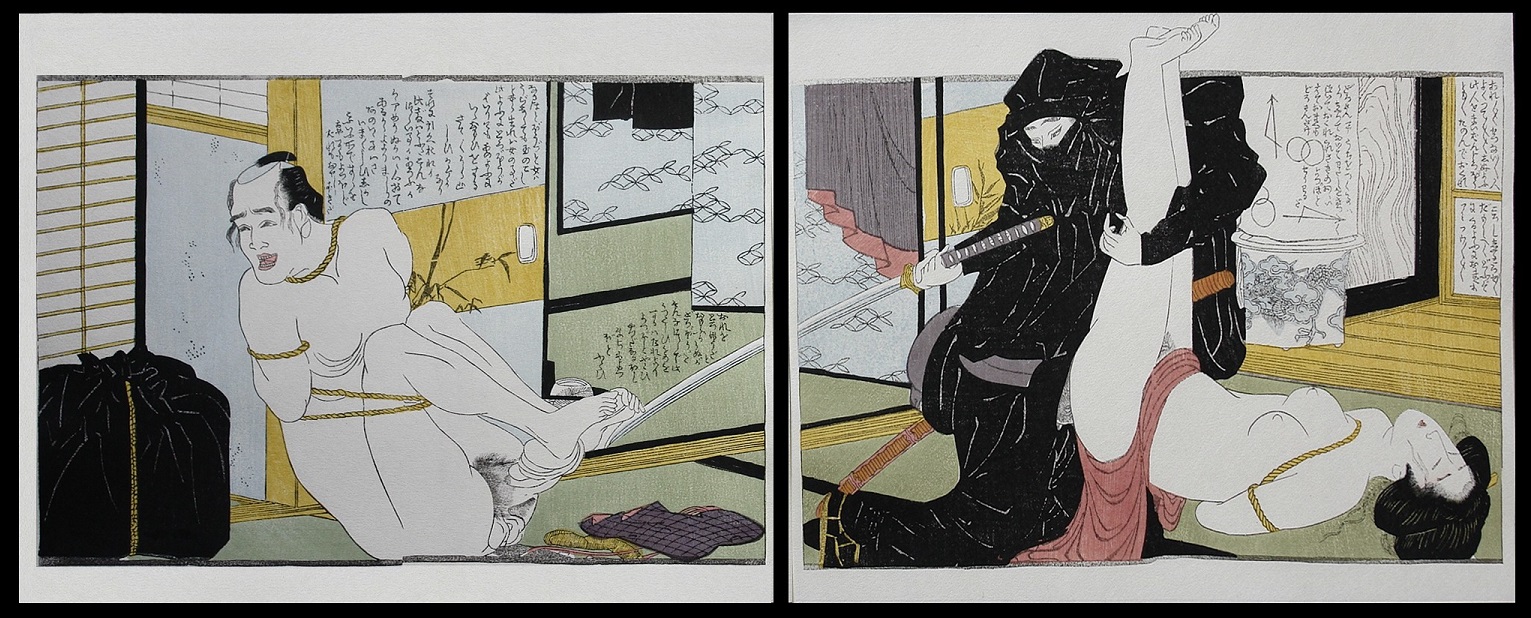
‘Separated sheets‘
Conjugal Eddies
But his rare four-page scene (two-page fold-out) from ‘Erotic Book of Conjugal Eddies (Ehon futamigata)‘-series (originally issued in 1803) is an early example of his mastery in the shunga genre and must certainly be included among the most important works in erotic art.
‘The Conjugal Eddies‘ series is Hokusai’s earliest attributed shunga work which he designed when he was in his mid-forties. It is now seen as key to the development of Hokusai’s erotic art from his early works of the Shunro period to his later masterpieces.
This is what other experts say about the “Ninja” design:
“…The scene of the robber raping a woman whose husband he has tied up and whom he taunts with the point of his sword, is one of the most horrifying of any shunga of the period … But the malevolent, black-clad figure of the robber is truly monumental and one of the most memorable images of the shunga even of this period.” (Jack Hillier The Art of the Japanese Book (London, 1987)
“…It (Ehon futamigata) contains the famous scene, unfolding over four pages, of a rape committed by a bandit while he keeps his victim’s husband at bay with a sword; the husband is tied up and screaming, but is no less sexually aroused than the bandit himself.” (Gian Carlo Calza in Poem of the Pillow and Other Stories by Utamaro, Hokusai…etc.).

If you're interested in obtaining this exclusive piece or want more info

